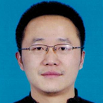Interlingual relations as a main factor in mutually enriching languages
Abstract
There are both reasonable and unjustified ideas in the assumptions and theories about the root commonality in languages of different systems. In this work presented to the readers, special attention is paid to the analysis of the right and wrong aspects of those ideas. Because the contradictions themselves are very important to reveal the truth. Later, in order to eliminate the difficulty in understanding the comparison of roots, it was considered appropriate to provide information about the structure and formation of the genetic roots of the Azerbaijani language itself. This work also analyzes the commonality of monosyllabic roots and words with root-formative composition, as well as parallelisms and motivational similarities. In this analysis, the latest sources of linguistics were used and analyzes and comparisons were made. The mutual development of languages is the reflection of interlingual interaction. The cooperation of nations and peoples affects primarily their language. Conversion of the achievements of scientific and technological achievements into the common property of humanity, the mutual development of their cultural values, in the creation and development of mutually beneficial relations between languages as well as in literature. In the process of its own historical development, the languages have been and continue to be in the process of mutual language interaction.
References
[1]Abbasov, B. (1995). Basics of the speech event. Baku: Azerbaijan State Publishing House.
[2]Abbasova, B. (2015). Basics of speech phenomenon. Baku: Azerneshr.
[3]Aghayeva, K. (2023). Interlingual interaction and word acquisition. Available online: https://arqument.az/az/dillerarasi-qarsiliqli-elaqe-ve-szalma/ (accessed on 12 November 2023).
[4]Almammadova, S. M. (2021). Different and Semantic Features of Terms. The Journal for Educators, Teachers and Trainers (JETT). 12.
[5]Almammadova, S. M. (2020). Theoretical issues of the terminology. International Journal of Humanities and Cultural Studies. 6, 1–7.
[6]Almammadova, S. M. (2021). Theoretical forms of standartization of terms. Laplage em Revista (International), 7, 74–76.
[7]Anisimova, A. G. (2010). Methodology for translating English terms in the humanities and social and political sciences. Moskova: Science.
[8]Baudouin, C. (1963). About the mixed character of languages. Selected works on general linguistics. Moscow: Nauka.
[9]Belchikov, Y. A. (1959). International terminology in the Russian language. Moscow: Uchpedgiz.
[10]Desheriev, Y. D. (1966). Laws of development and interaction of languages in Soviet society. Moscow: Nauka.
[11]Desnitskaya, A. V. (1956). To the question of the interaction of languages. Doklady o soobschenia ins-ta yazkoznaniya AN SSSR, Moscow.
[12]Garayev, A. (1999). Lexical borrowings of European origin in the modern Azerbaijani language. Baku: ASU.
[13]Hasanov, H. A. (1988). Lexicon of modern Azerbaijani language. Baku: Maarif.
[14]İbrahimov, E. (2016). Alphabet and Spelling Problems in Creating a Common Spoken Language in the Turkic World (Turkish). Gazi Türkiyat, 18, 213–220.
[15]İbrahimov, E. (2020). Sociolinguistic Paradigms of Language Policies in Azerbaijan. SUTAD, (50), 27–41.
[16]İbrahimov, E. (2023). Language Policy in Turkic States and Societies Historical Aspect (Turkish). Selçuk Üniversitesi Türkiyat Araştırmaları Dergisi, 60, 327–352. https://doi.org/10.21563/sutad.1405537
[17]Jahangirov, M. P. (1999). Formation of Azerbaijani literary language. Baku: Science.
[18]Khalilova, S. N. (2021). International terms. Baku: Maarif.
[19]Muharramli, G. (2019). Borrowed words used in the media. Baku: Science.
[20]Rajabli, A. A. (2003). Theoretical linguistics. Baku: Nurlan.
[21]Sadygova, S. A. (2021). Terminology of the Azerbaijani language. Baku: Science.
[22]Valiyeva, Ch. (2019). Interaction of languages: substrate, superstart and adstrate. Scientific work (monthly international scientific journal on humanitarian sciences), 6 (7), 4–7.
[23]Zhuravlev, V. K. (1992). External and internal factors of language evolution. Moscow: Nauka.
Copyright (c) 2024 Rzayeva Nuriyya Asgar, Sabina Almammadova Mammad

This work is licensed under a Creative Commons Attribution 4.0 International License.
The author(s) warrant that permission to publish the article has not been previously assigned elsewhere.
Author(s) shall retain the copyright of their work and grant the Journal/Publisher right for the first publication with the work simultaneously licensed under:
OA - Creative Commons Attribution License (CC BY 4.0). This license allows for the copying, distribution and transmission of the work, provided the correct attribution of the original creator is stated. Adaptation and remixing are also permitted.
This broad license intends to facilitate free access to, as well as the unrestricted reuse of, original works of all types.









_%E5%89%AF%E6%9C%AC1.png)

